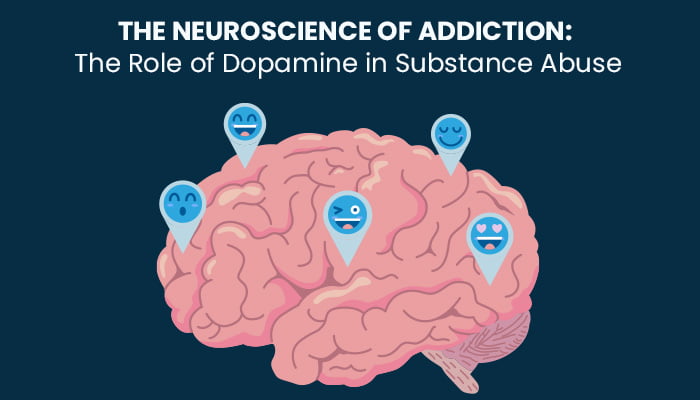Dialectical Behavior Therapy (DBT) for Addiction
Table of Contents
One of our popular offerings is dialectical behavior therapy (DBT) – a cognitive behavioral therapy that helps individuals get rid of negative thoughts and make positive life changes. DBT isn’t just a part of substance abuse programs – it’s also highly effective in treating mental health disorders, such as borderline personality disorder and suicidal behavior. Since many addicts have concurrent mental health disorders, DBT enables them to fill two needs with one deed. They can recover from their addiction while also treating mental illness that could push them back into a cycle of addiction after leaving rehabilitation. Furthermore, many healthcare professionals refer to mental illness and addiction as “comorbid” – you can’t treat one without treating the other.

If you have dual diagnosis (a mental health disorder and addiction), participating in DBT could provide tons of benefits. Nevertheless, you don’t need to suffer from concurrent conditions to qualify for DBT. This form of therapy is successful in treating substance abuse disorder alone. Before starting your personalized treatment plan at United Recovery Project, you’ll have the opportunity to meet with a licensed therapist and decide whether DBT is a good fit for you. Your initial assessment will consider your addiction history, special accommodations, and any underlying conditions that impact your treatment needs.
How Dialectical Behavior Therapy Helps Addiction
Although dialectical behavior therapy may vary depending on the treatment center, it typically consists of a pretreatment stage followed by four different steps. Each step is a precursor to the one afterward (i.e., you can’t complete step three without first completing step one). DBT pretreatment and the subsequent four stages entail the following:
Pretreatment: Clients must participate in pretreatment as a prerequisite to the four stages of DBT. Pretreatment consists of an introduction to DBT and doesn’t involve any treatment. However, skipping this step could lead to a lack of mutual understanding between the client and therapist, resulting in ineffective treatment. During pretreatment, the client and therapist create an agreement that defines the length and scope of the DBT. They also discuss what DBT encompasses and whether or not it’s the best treatment option or if there are alternative treatments that may better serve the client.
Stage one: In the first stage of DBT, you’ll work with your therapist to identify problematic behavior, such as carefree drug use or violent outbursts. After identifying such behavior, you’ll learn techniques that help you control your risky emotions and actions.
Stage two: Many addicts have experienced trauma in their past, including sexual abuse and domestic violence. The goal of stage two is to ease the symptoms of traumatic experiences. Clients openly discuss their past with their therapists in a calm atmosphere that shouldn’t intensify their behavior.
Stage three: Stage three is relatively flexible and may vary depending on your therapy program. Clients identify their goals and think of ways to reach them. They also learn to trust themselves and instill trust in those around them. Lastly, the client starts to live life again as they learn to cope with their negative emotions and control behaviors.
Stage four: The last stage of DBT is when participants discover their spiritual existence. Clients use this step to fuel their recovery journey and come to terms with their profound meaning in life. Throughout this stage, clients will continue to reflect on stages one and two.
The primary goal of DBT is to help individuals turn negative thought patterns and behaviors into positive outcomes. You don’t skip stages when you participate in DBT, but you might move backward. For instance, once you reach stage three, you may return to stage one to revisit your problematic behavior.
DBT: A Look At The Proof
A study was conducted on the effectiveness of DBT in the journal of Borderline Personal Disord Emot Dysregul. The researchers completed the study over four years and analyzed a population of 78 patients. The study found that many patients significantly improved after one year of treatment and had fewer thoughts of self-harm. 77% of the participants no longer met the criteria for a BPD diagnosis after completing DBT. The study ultimately concluded that outpatient DBT is effective. While addiction wasn’t part of the study, it’s important to remember that many addicts suffer from concurrent mental health conditions. In order to achieve success, recovering addicts must treat mental illness and addiction.
Other studies have reached conclusions similar to that of the journal of Borderline Personal Disord Emot Dyregul. For example, Dr. Dimeff and Dr. Linehan concluded that DBT is effective for substance abuse patients, specifically those with emotional dyscontrol.
The Advantages Of Dialectical Behavior Therapy
The advantages of dialectical behavior therapy are endless. Some of the benefits include, but are not limited to:
- Build self-confidence
- Enhance relationships with friends and family
- Identify and resolve problematic behavior
- Find ways to manage negative emotions
- Learn how to see the big picture in life
- Practice and learn lifelong skills
- Boost your self-worth
- Discover your spiritual being
Is Dialectical Behavior Therapy Right For You?
If you can answer “yes” to any of the below questions, DBT could be a great fit for you:
- Do you want to control your negative emotions?
- Is your behavior often aggressive or irritable?
- Do you have low self-esteem that impacts your desire to recover from substance abuse?
- Would you like to discover your spiritual being?
- Do you suffer from a concurrent mental health condition, such as bipolar disorder?
Contact us today to get your recovery journey started!
- Addiction Therapy Programs
- Cognitive Behavioral Therapy (CBT) for Addiction
- Psychotherapy for Addiction
- United Recovery Project Family Group
- Music Therapy for Addiction
- Life Skills Training for Addiction
- Holistic Therapy for Addiction
- New Jersey Equine Therapy for Addiction
- Art Therapy for Addiction in New Jersey
- Equine Therapy for Addiction in New York
- Art Therapy for Addiction in New York
- Equine Therapy for Addiction in Florida
- Art Therapy for Addiction In Florida
- Psychotherapy for Addiction
- Nutrition Therapy for Addiction
- Music Therapy for Addiction
- Life Skills Training for Addiction
- Holistic Therapy for Addiction
- Group Therapy for Addiction
- Equine Therapy for Addiction
- Art Therapy for Addiction
- Animal-Assisted Therapy
- 12-Step Facilitation Therapy
- Motivation Therapy for Addiction
- Dialectical Behavior Therapy (DBT) for Addiction
- Cognitive Behavioral Therapy (CBT) for Addiction
